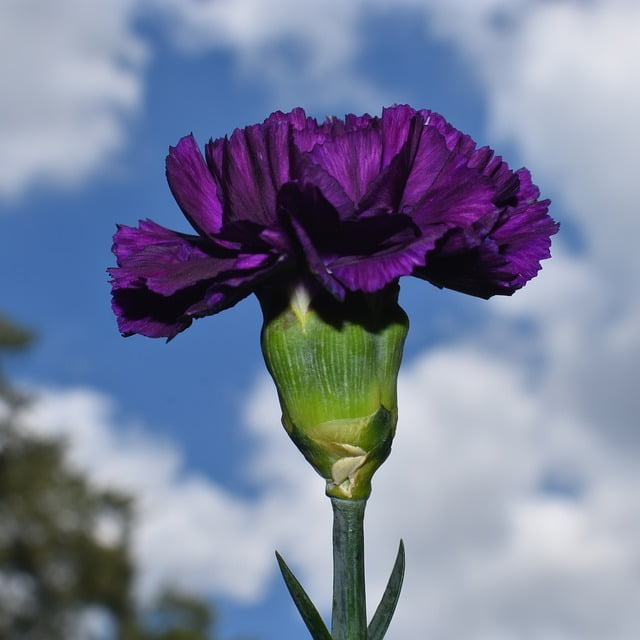Carnation is a popular and well-known flowering plant that belongs to the Dianthus genus. It is cherished for its colorful and ruffled flowers, which come in a variety of shades, including pink, red, white, yellow, and purple.
Carnations are valued not only for their beauty but also for their symbolism and various uses.

Symbolism: Carnations have different meanings depending on their color. For example, red carnations often symbolize love and admiration, white carnations symbolize purity and luck, and pink carnations are associated with gratitude and affection. They are a popular choice for floral arrangements and bouquets on special occasions, including weddings and Mother’s Day.

Cultural Significance: Carnations have been cultivated for over 2,000 years and have cultural and historical significance in various parts of the world. In some cultures, they are associated with religious ceremonies and rituals.

Longevity: Carnations are known for their long-lasting blooms, which make them a favourite choice for cut flowers and arrangements. They can maintain their freshness for an extended period, often outlasting many other flowers.

Fragrance: While not as fragrant as some other flowers, carnations have a subtle, sweet scent. This makes them a popular choice for adding a touch of fragrance to floral displays.

Gardening: Carnations are also grown in gardens, where they serve as both ornamental and cut flowers. They require well-drained soil and full sun to thrive.

Carnations are known for their beauty, versatility, and cultural significance, making them a beloved flower in various parts of the world for both ornamental and symbolic purposes.
Carnations: Symbolic, Fragrant, and Timeless. Explore their colorful meanings and long-lasting beauty.
Which is your favourite color of carnation?
